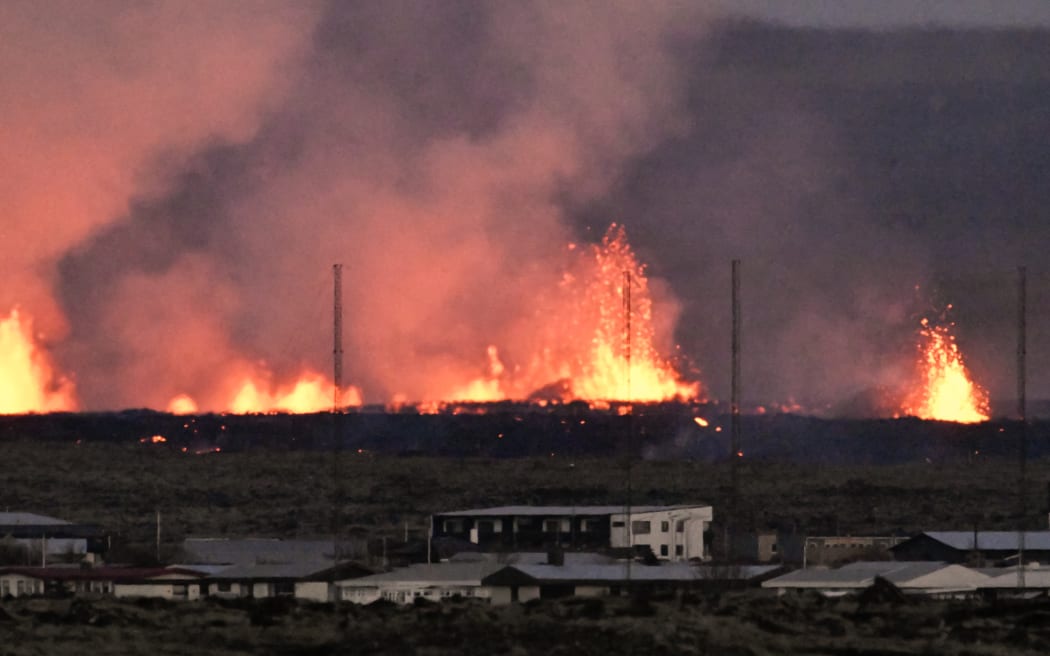
A volcano on the Reykjanes peninsula erupted in the early hours of Sunday, spewing lava into the fishing village. According to one expert, the volcano eruption is “the worst-case scenario,” as the entire town’s population has been evacuated. Defenses built following a December eruption have partially contained the lava, but some have been breached. The flow of lava has cut off the main road into town.
Iceland’s President Gudni Johannesson addressed the nation in a live broadcast on Sunday evening, urging people to “stand together and have compassion for those who cannot be in their homes”.
According to the AFP news agency, he expressed hope that the situation would calm down, but added that “anything can happen.”
The December eruption of the Svartsengi volcanic system was preceded by strong earthquake tremors. In recent weeks, walls have been built around the volcano to divert molten rock away from Grindavík, which is home to approximately 4,000 people.
The Icelandic Meteorological Office (IMO) reported that the barriers had been breached in some places, allowing lava to enter the town and set fire to houses and buildings.
After returning to Grindavík in southwest Iceland after the previous eruption, residents were forced to evacuate once more.
Robin Andrews, a science journalist and volcanologist, described the ongoing eruption as an “extremely perilous and deleterious situation” now that lava has entered the town.
Speaking to the BBC, he stated that the eruption of lava from the two current fissures shows “no sign of slowing down”.
“In terms of duration and severity of damage its impossible to map at this moment,” he told reporters.
He warned that the aftermath of the eruption could be “fairly problematic” for people with pre-existing respiratory problems, because volcanic activity releases gases such as sulphur dioxide, which is an irritant to the skin, eyes, nose and throat.
Iceland volcano eruption: The country’s alert level has been raised to “emergency,” the highest of the three levels
“Today is a black day for Grindavík and today is a black day for all of Iceland, but the sun will rise again,” she said.
“Together we will deal with this shock and whatever may come. Our thoughts and prayers are with you.”
Prime Minister Katrín Jakobsdóttir announced that the government will meet on Monday to discuss housing options for evacuated residents.
The country’s alert level has been raised to “emergency,” the highest of the three levels indicating a potential threat to people, communities, property, or the environment.
Sunday’s eruption is the fifth to occur along the Reykjanes peninsula since 2021.
Iceland is located on the Mid-Atlantic Ridge, which separates the Eurasian and North American tectonic plates, two of the world’s largest. It contains 33 active volcano systems.
